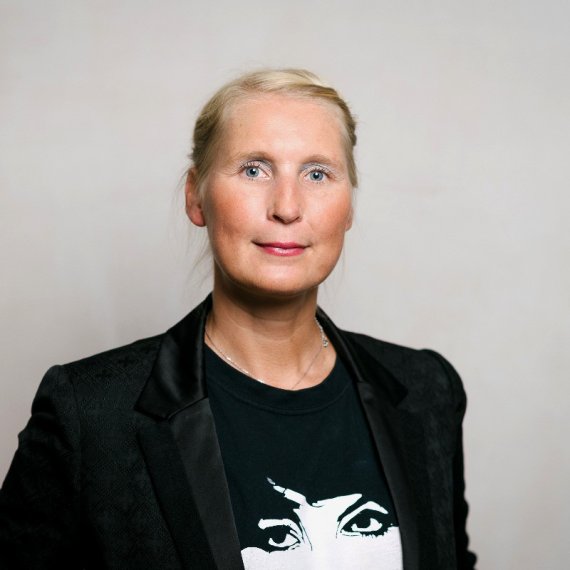- Lucas Mittelmeier, Heal Capital: "Regulatory changes can create massive markets."
- Kai Langohr, Isartal Ventures & Isartal Health Media: "Telemedicine and the care market are key topics."
- Dorothée Marie-Louise Doepfer, Berlin Institute of Health at Charité: "We find bioprinting, digital twins and decision support systems exciting."
- The Key Takeaways You need to know

Lucas actually works in Berlin. But when our conversation begins, he is sitting in a hotel room in Finland. The investor is currently attending SLUSH, a start-up and tech event in Helsinki. His first impression after scanning the list of young companies: "It feels like there are only two camps at the moment: mental health and women's health." His employer Heal Capital invests in companies "that improve the healthcare system and have digital components at their core: Our focus is on software."
Absolutely. A striking number of start-ups are dedicated to female health and topics such as menopause, endometriosis or childbirth. The other large group focuses on mental health, often on employer models that offer tools for employee health. These topics are more dominant than others on SLUSH - despite the skepticism of many investors, as few unicorns have emerged to date.
Historically, both fields have achieved low returns. This is partly due to the fact that less money flows into the healthcare system. For example, there is unfortunately still no treatment or insurance reimbursement for certain illnesses that could earn money. As a result, hardly any large companies have emerged in the European sector - although many would like to.
State pension systems are under pressure, in England or Germany, for example, the health insurance funds: contributions are rising, people are ill for longer. Then there is the debate about pensions, another part of the social system. Everything is imploding. And now, at the beginning of the year, England is increasingly allowing private service providers to become part of the National Health Service (NHS) - because the system itself can no longer cope. From a funding perspective, it will be interesting to see whether large budgets open up.
Automation of repetitive tasks using AI, for example practice assistants who answer patients' questions. Note-taking tools that automatically create doctors' reports or shift planning tools that organize substitutes at short notice.
For example, AI Drug Discovery, AI as a researcher of new drugs, received billions in investment but often failed in clinical trials. Not everything that says AI on it is gold. Some AI tools are interchangeable features - but not companies. In addition, almost anyone can build something quickly today thanks to open source models, which is why we are not investing here.
Revenue sharing is effective, for example with radiologists: an AI tool analyzes images as an additional service. If the patient pays, the start-up and the radiologist share the revenue. A similar example is AI-supported heart failure monitoring: patients use smartwatches and scales, while doctors can analyze and bill their data.
I can't give any details publicly yet - but that will come soon! In my experience, you need a good nose for a subject area. And then a founding team that is agile enough to maneuver through it. When a regulatory change comes along, it can be absurdly big. Because the influence of regulation on this market is huge.
With digital health applications (DIGA), we were unsure from the outset how this could scale. Unfortunately, it's even more difficult than we thought. I think the industry is only just discovering how to make money with it. For me, this is the most difficult child in the health tech sector.
- Regulatory changes create opportunities: Regulations such as the integration of private providers into state healthcare systems (e.g. NHS) can open up new markets and large budgets. An understanding of regulatory dynamics is essential in order to manage investments and identify market potential.
- Mental and women's health dominate, but earn poorly: Start-ups in the field of mental health and specific women's issues such as menopause or endometriosis are strongly represented. Despite their social relevance, however, there are still few unicorns and low returns here, as funding and reimbursement models are often lacking.
- AI solutions excel in automation: AI tools that automate repetitive tasks such as doctor reports, patient questions or shift planning are promising. At the same time, overrated concepts such as AI Drug Discovery often fail in practical implementation, which emphasizes the importance of clear added value.

Kai Langohr has two job descriptions. He is Portfolio Manager at Isartal Ventures and the right-hand man of CEO Andreas Arntzen of Wort & Bild Verlag ("Apotheken Umschau") - and is therefore always involved "when it comes to our second investment vehicle Isartal Health Media", as he explains. His work includes minority shareholdings and M&A deals in particular. "We act as a strategic investor, not just with a view to financial KPIs."
Traction and market readiness - validation of the solution on the market is essential for us. Start-ups should have already gone through the first iteration loops and validated their business model. As a media company with a wide reach, we can provide support in particular with scaling in the DACH region, rather than with technologies in the approval phase.
Telemedicine and the care market are key topics. Demographic change is fueling the need for innovative solutions, especially for the silver society. There are immense opportunities here, also driven by political pressure on the healthcare system.
... which remains a central component of our Apotheken Umschau brand essence. At the same time, we are expanding our focus on healthcare professionals such as doctors, nursing homes and other medical professionals. Our publishing house has traditionally had a strong B2C focus, with direct contact to patients and pharmacies. Now we are increasingly focusing on making direct contact with doctors and other healthcare professionals through the investments of Isartal Health Media.
AI and telemedicine are key topics for us. Wearables that focus on prevention and longevity are also important. Even if Isartal Ventures is not currently investing in hardware devices, we are observing the opportunities - especially with deep-tech start-ups that are developing new sensors. These technologies integrate complex diagnostics and tests, for example in wearable devices such as smartwatches. In the past, this required expensive laboratory equipment.
... Data business models are a huge trend, data is the new currency in healthcare. It offers patients the opportunity to customize their lifestyle and pharmaceutical companies the chance to develop products and engage with patients. Access to anonymized data and its aggregation is essential, as pharmaceutical companies have so far had little insight into the chain of events between tests, findings and prescriptions. AI and data science are reinforcing this trend.
AI is an important topic, but you have to take a close look at what is really innovative. Many solutions are just marginal advances or simple API calls. AI is useful for administrative tasks such as transcription to save doctors time, but it's crucial whether a solution offers real added value. We check this with specialized investors, our CTO and expert network, conduct reference calls and coordinate with start-ups. Our cooperation with you.com also helps us to distinguish between hype and impact.
- He considers telemedicine and care to be future fields: Both are key growth areas, particularly due to demographic change and the needs of the silver society (60+). These developments open up economic opportunities.
- He focuses on healthcare professionals and scalable solutions: Isartal Ventures is expanding its focus on healthcare professionals such as doctors and care facilities. Essential for investments are market validation and first iterations of start-ups where the business model has already been tested.
- Technologies and data are key factors: AI, wearables and data-driven business models are gaining in importance. Access to anonymized health data enables innovations in prevention, diagnostics and personalized medicine.

"Translational" is probably the first term you need to know to understand the work of Dorothée Marie-Louise Döpfer. The co-director of the Digital Lab at the Berlin Institute of Health at Charité helps to translate research findings from the field of digital medical and biotechnologies into everyday clinical practice. Ideas for this translational process usually come from doctors who want to bring their solutions to patients. "Our solutions arise from a direct need, are built directly in at least one clinic - and tested there," explains the long-standing digital health expert, adding: "Deep-tech start-ups often have great solutions that fail because they cannot be integrated into everyday clinical practice." What do they lack? The necessary on-site knowledge.
With health tech innovations, I first check the database: where does it come from, how diverse is it, and is there a bias? This is particularly important for scalable solutions in other countries. I take a critical view of topics such as DIGA, as implementation and benefits often fall short of expectations. It is always important who an innovation serves - whether it improves diagnoses, optimizes therapies and who pays for it.
In the field of cancer, diagnostic support systems help to determine the type of tumor at an early stage and select the optimal therapy in order to avoid undesirable side effects of surgery or therapies such as neuropathies after chemotherapy. In radiology, such systems can also reduce invasive procedures by supporting more precise diagnoses and preventing unnecessary biopsies, for example.
AI is still a big topic, but we are questioning where the data comes from and whether it is sufficiently diverse. Germany has structural weaknesses here. We also find areas such as bioprinting, digital twins and decision support systems that help doctors to use complex amounts of data efficiently exciting.
Digital twins are of particular interest in transplant medicine and complex operations. They enable simulations, improve safety and help in the development of new procedures. We ourselves have a spin-off in this area that deals with metabolic diseases such as NAFLD (non-alcoholic fatty liver disease) - a steadily growing problem worldwide for which there is still no real medication.
Prevention is an important topic, but is hardly funded in Germany. We are therefore focusing on diseases that need to be detected and treated early, such as cardiovascular or childhood diseases. One example is a solution for the early detection of epilepsy in small children in order to prevent subsequent damage.
So, let me put it bluntly: the German healthcare system should actually be restructured, because unfortunately it will not be sustainable in the long term. We, the contributors, pay into the health insurance funds and still wait months for appointments or treatment and medical aids. Basic insurance with additional private cover could be the future. The B2C market is gaining in importance, as patients' willingness to pay would increase. Selective contracts, especially in the children's sector, are an interesting way for health insurance companies to retain customers. Studies from England show that patients would be willing to share their data voluntarily as long as they would benefit directly from improved care.
A start-up from our program recently raised 34 million euros. It is developing AI models in the field of digital pathology to support the industry in the development of cancer drugs, for example. Such digital approaches are in demand worldwide - and show how innovation can arise from clinical need.
- Deep-tech start-ups fail due to a lack of local knowledge: The success of digital medical and biotechnologies lies in the close connection between clinical need and technological development. Deep-tech start-ups often fail because they cannot be integrated into everyday clinical practice as they lack the practical knowledge.
- Data quality and diversity are crucial: AI-supported approaches in particular must avoid potential biases and be internationally applicable.
- An ailing system harbors new business models: Future healthcare system models could be a combination of basic insurance and private coverage. The B2C market is growing as patients' willingness to pay increases. Digital twins and AI-driven diagnostic support systems show how clinical innovations can help reduce costs and improve patient care.
- Data and technologies as the basis for innovation: The quality and diversity of data are essential for scalable solutions in AI, wearables and data-driven business models. Anonymized health data promotes innovation in prevention, diagnostics and personalized medicine, while automation through AI makes repetitive tasks such as medical reports and shift planning more efficient.
- Practical need and market validation are crucial: The success of health tech start-ups lies in the close link between clinical need, regulatory frameworks and iterative market validation. Solutions need to be both practically integrable and regulatory compliant in order to exploit growth potential in areas such as telemedicine, care and digital twins.
- New business models and target groups in transition: Future business models could be based on a combination of basic insurance and private cover. At the same time, B2C markets are growing as patients are increasingly willing to pay for innovative solutions. Opportunities lie in the silver society, women's health and mental health, while regulatory changes are opening up new markets and funding opportunities.
- Awards
- Mountain sports
- Bike
- Fitness
- Health
- ISPO Munich
- Running
- Brands
- Sustainability
- Olympia
- OutDoor
- Promotion
- Sports Business
- Textrends
- Triathlon
- Water sports
- Winter sports
- eSports
- SportsTech
- OutDoor by ISPO
- Heroes
- Transformation
- Sport Fashion
- Urban Culture
- Challenges of a CEO
- Trade fairs
- Sports
- Find the Balance
- Product reviews
- Newsletter Exclusive Area
- Magazine





